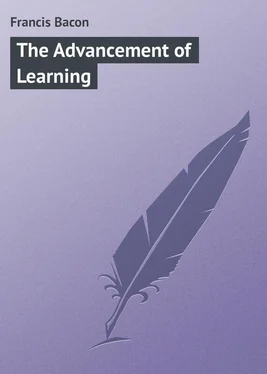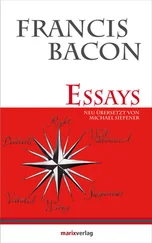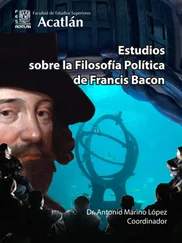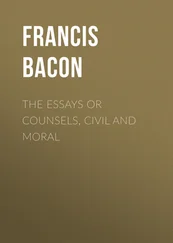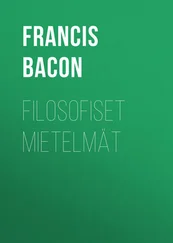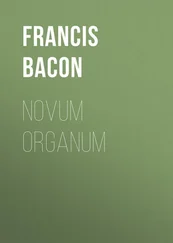Francis Bacon - The Advancement of Learning
Здесь есть возможность читать онлайн «Francis Bacon - The Advancement of Learning» — ознакомительный отрывок электронной книги совершенно бесплатно, а после прочтения отрывка купить полную версию. В некоторых случаях можно слушать аудио, скачать через торрент в формате fb2 и присутствует краткое содержание. Год выпуска: 0101, Жанр: foreign_antique, foreign_prose, на английском языке. Описание произведения, (предисловие) а так же отзывы посетителей доступны на портале библиотеки ЛибКат.
- Название:The Advancement of Learning
- Автор:
- Жанр:
- Год:0101
- ISBN:нет данных
- Рейтинг книги:5 / 5. Голосов: 1
-
Избранное:Добавить в избранное
- Отзывы:
-
Ваша оценка:
- 100
- 1
- 2
- 3
- 4
- 5
The Advancement of Learning: краткое содержание, описание и аннотация
Предлагаем к чтению аннотацию, описание, краткое содержание или предисловие (зависит от того, что написал сам автор книги «The Advancement of Learning»). Если вы не нашли необходимую информацию о книге — напишите в комментариях, мы постараемся отыскать её.
The Advancement of Learning — читать онлайн ознакомительный отрывок
Ниже представлен текст книги, разбитый по страницам. Система сохранения места последней прочитанной страницы, позволяет с удобством читать онлайн бесплатно книгу «The Advancement of Learning», без необходимости каждый раз заново искать на чём Вы остановились. Поставьте закладку, и сможете в любой момент перейти на страницу, на которой закончили чтение.
Интервал:
Закладка:
(3) Here therefore [is] the first distemper of learning, when men study words and not matter; whereof, though I have represented an example of late times, yet it hath been and will be secundum majus et minus in all time. And how is it possible but this should have an operation to discredit learning, even with vulgar capacities, when they see learned men’s works like the first letter of a patent or limited book, which though it hath large flourishes, yet it is but a letter? It seems to me that Pygmalion’s frenzy is a good emblem or portraiture of this vanity; for words are but the images of matter, and except they have life of reason and invention, to fall in love with them is all one as to fall in love with a picture.
(4) But yet notwithstanding it is a thing not hastily to be condemned, to clothe and adorn the obscurity even of philosophy itself with sensible and plausible elocution. For hereof we have great examples in Xenophon, Cicero, Seneca, Plutarch, and of Plato also in some degree; and hereof likewise there is great use, for surely, to the severe inquisition of truth and the deep progress into philosophy, it is some hindrance because it is too early satisfactory to the mind of man, and quencheth the desire of further search before we come to a just period. But then if a man be to have any use of such knowledge in civil occasions, of conference, counsel, persuasion, discourse, or the like, then shall he find it prepared to his hands in those authors which write in that manner. But the excess of this is so justly contemptible, that as Hercules, when he saw the image of Adonis, Venus’ minion, in a temple, said in disdain, Nil sacri es ; so there is none of Hercules’ followers in learning – that is, the more severe and laborious sort of inquirers into truth – but will despise those delicacies and affectations, as indeed capable of no divineness. And thus much of the first disease or distemper of learning.
(5) The second which followeth is in nature worse than the former: for as substance of matter is better than beauty of words, so contrariwise vain matter is worse than vain words: wherein it seemeth the reprehension of St. Paul was not only proper for those times, but prophetical for the times following; and not only respective to divinity, but extensive to all knowledge: Devita profanas vocum novitates , et oppositiones falsi nominis scientiæ . For he assigneth two marks and badges of suspected and falsified science: the one, the novelty and strangeness of terms; the other, the strictness of positions, which of necessity doth induce oppositions, and so questions and altercations. Surely, like as many substances in nature which are solid do putrefy and corrupt into worms; – so it is the property of good and sound knowledge to putrefy and dissolve into a number of subtle, idle, unwholesome, and (as I may term them) vermiculate questions, which have indeed a kind of quickness and life of spirit, but no soundness of matter or goodness of quality. This kind of degenerate learning did chiefly reign amongst the schoolmen, who having sharp and strong wits, and abundance of leisure, and small variety of reading, but their wits being shut up in the cells of a few authors (chiefly Aristotle their dictator) as their persons were shut up in the cells of monasteries and colleges, and knowing little history, either of nature or time, did out of no great quantity of matter and infinite agitation of wit spin out unto us those laborious webs of learning which are extant in their books. For the wit and mind of man, if it work upon matter, which is the contemplation of the creatures of God, worketh according to the stuff and is limited thereby; but if it work upon itself, as the spider worketh his web, then it is endless, and brings forth indeed cobwebs of learning, admirable for the fineness of thread and work, but of no substance or profit.
(6) This same unprofitable subtility or curiosity is of two sorts: either in the subject itself that they handle, when it is a fruitless speculation or controversy (whereof there are no small number both in divinity and philosophy), or in the manner or method of handling of a knowledge, which amongst them was this – upon every particular position or assertion to frame objections, and to those objections, solutions; which solutions were for the most part not confutations, but distinctions: whereas indeed the strength of all sciences is, as the strength of the old man’s faggot, in the bond. For the harmony of a science, supporting each part the other, is and ought to be the true and brief confutation and suppression of all the smaller sort of objections. But, on the other side, if you take out every axiom, as the sticks of the faggot, one by one, you may quarrel with them and bend them and break them at your pleasure: so that, as was said of Seneca, Verborum minutiis rerum frangit pondera , so a man may truly say of the schoolmen, Quæstionum minutiis scientiarum frangunt soliditatem . For were it not better for a man in fair room to set up one great light, or branching candlestick of lights, than to go about with a small watch-candle into every corner? And such is their method, that rests not so much upon evidence of truth proved by arguments, authorities, similitudes, examples, as upon particular confutations and solutions of every scruple, cavillation, and objection; breeding for the most part one question as fast as it solveth another; even as in the former resemblance, when you carry the light into one corner, you darken the rest; so that the fable and fiction of Scylla seemeth to be a lively image of this kind of philosophy or knowledge; which was transformed into a comely virgin for the upper parts; but then Candida succinctam latrantibus inguina monstris: so the generalities of the schoolmen are for a while good and proportionable; but then when you descend into their distinctions and decisions, instead of a fruitful womb for the use and benefit of man’s life, they end in monstrous altercations and barking questions. So as it is not possible but this quality of knowledge must fall under popular contempt, the people being apt to contemn truths upon occasion of controversies and altercations, and to think they are all out of their way which never meet; and when they see such digladiation about subtleties, and matters of no use or moment, they easily fall upon that judgment of Dionysius of Syracusa, Verba ista sunt senum otiosorum .
(7) Notwithstanding, certain it is that if those schoolmen to their great thirst of truth and unwearied travail of wit had joined variety and universality of reading and contemplation, they had proved excellent lights, to the great advancement of all learning and knowledge; but as they are, they are great undertakers indeed, and fierce with dark keeping. But as in the inquiry of the divine truth, their pride inclined to leave the oracle of God’s word, and to vanish in the mixture of their own inventions; so in the inquisition of nature, they ever left the oracle of God’s works, and adored the deceiving and deformed images which the unequal mirror of their own minds, or a few received authors or principles, did represent unto them. And thus much for the second disease of learning.
(8) For the third vice or disease of learning, which concerneth deceit or untruth, it is of all the rest the foulest; as that which doth destroy the essential form of knowledge, which is nothing but a representation of truth: for the truth of being and the truth of knowing are one, differing no more than the direct beam and the beam reflected. This vice therefore brancheth itself into two sorts; delight in deceiving and aptness to be deceived; imposture and credulity; which, although they appear to be of a diverse nature, the one seeming to proceed of cunning and the other of simplicity, yet certainly they do for the most part concur: for, as the verse noteth —
Читать дальшеИнтервал:
Закладка:
Похожие книги на «The Advancement of Learning»
Представляем Вашему вниманию похожие книги на «The Advancement of Learning» списком для выбора. Мы отобрали схожую по названию и смыслу литературу в надежде предоставить читателям больше вариантов отыскать новые, интересные, ещё непрочитанные произведения.
Обсуждение, отзывы о книге «The Advancement of Learning» и просто собственные мнения читателей. Оставьте ваши комментарии, напишите, что Вы думаете о произведении, его смысле или главных героях. Укажите что конкретно понравилось, а что нет, и почему Вы так считаете.
